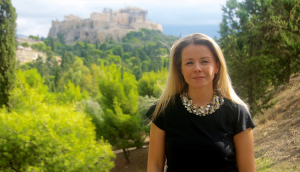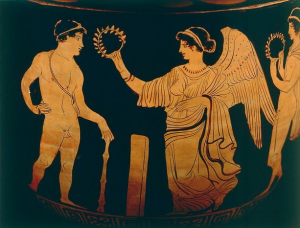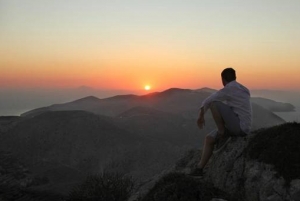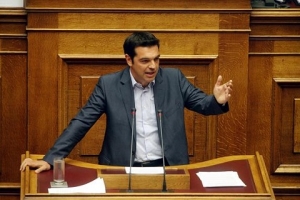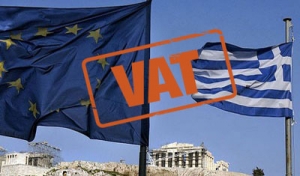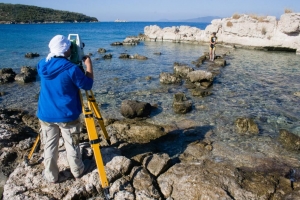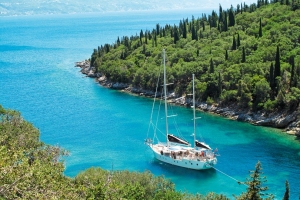XpatAthens
Elena - From Canada To Greece Building The Biggest Expat Community In The Country
Elena grew up in Toronto, Canada. She studied Art History & Classics at the University of Toronto and had a career in luxury sales and customer service until she took a leap of faith and moved to Greece to pursue a new life and her entrepreneurial dreams.
5 Things To Know About Elena
• Visionary
• Soulful Businesses
• Honesty and Gratitude
• Serenity Prayer
I grew up in a small family business - metal manufacturing factory - where I had to do just about everything from make morning coffee to answer sales calls to fill boxes and load trucks! Always having some involvement in the family business, in parallel I began working retail and this is where I learned the art of sales and customer service.
To be honest, I didn't really want to go to university, but my (wise) mother made me go and so I chose to study something that I loved. Something that I couldn't stop reading about, something I could spend hours on end learning more and more and more, something I was inspired by.
I knew that I had to be true to me and listen to exactly what I wanted; listen to my intuition and trust myself. I never really made a switch in careers as I loved what I was doing. I did however dream of creating my own company and moving to Greece. It took me about two years to make the country move possible and another few years to get adjusted to my new way of life in Greece and to finally make my entrepreneurial dream a reality.
There were many moments where I envisioned living in Greece and really thought about it as if it was already real, but there was a very distinct moment that I'll always remember when I made the decision. I was on a hill in Siena, Italy and I thought “This is what I want to see and live everyday of my life. I want to be surrounded by natural beauty and surrounded by everything that makes me feel alive every day.”
With a seed that was planted in my brain, that grew into a vision, that got translated into words on paper, that became a plan, that became a reality, that became work in progress, that became a business. It has taken a lot (really a lot) of strength, perseverance and determination and ultimately trusting myself to believe it is possible and that I can do it. It took me a good few years to make my vision a reality. Coming from an entrepreneurial family I have inherited that state of mind and my entrepreneurial endeavors have changed along the way as I evolved.
I currently run 2 businesses (and a busy household!) in the country I dreamed of living in, Greece.
I am working on growing and developing these businesses, which are both part of a bigger dream of mine.
Read Elena's full inspiring story on Guts & Tales.
Maria Christodoulou | The Greek Herbalist
A Brief History Of The Olympic Games
Spanning millennia, this global sporting event has evolved from its humble beginnings to become one of the most celebrated and anticipated spectacles in the modern world.
Ancient Origins
An Acropolis Museum Christmas
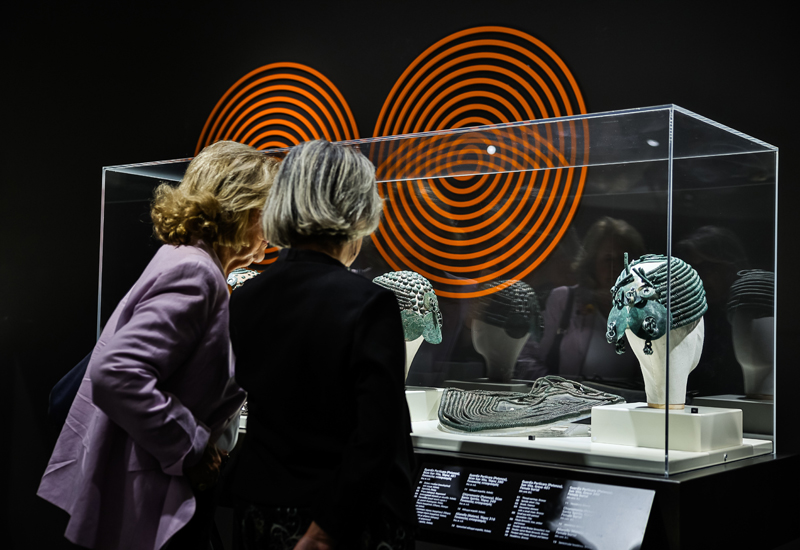
- When: Weekly tours (check availability)
- Where: Periodical Exhibitions Hall
- Admission: Free entry (reservations required via events.theacropolismuseum.gr)
- Extras: Audio-guided tours via QR code for an independent visit
- When: Friday, December 27, and Monday, December 30
- Time: 10:30 AM & 12:30 PM
- Ages: 6–12 years
- Cost: Free for children (with adult day admission)
- Reservations: Open December 17 via events.theacropolismuseum.gr
- When: Saturday, December 28, and Sunday, December 29
- Time: 10:30 AM & 12:30 PM
- Ages: 3–5 years
- Cost: Free for children (with adult day admission)
- Reservations: Open December 17 via events.theacropolismuseum.gr
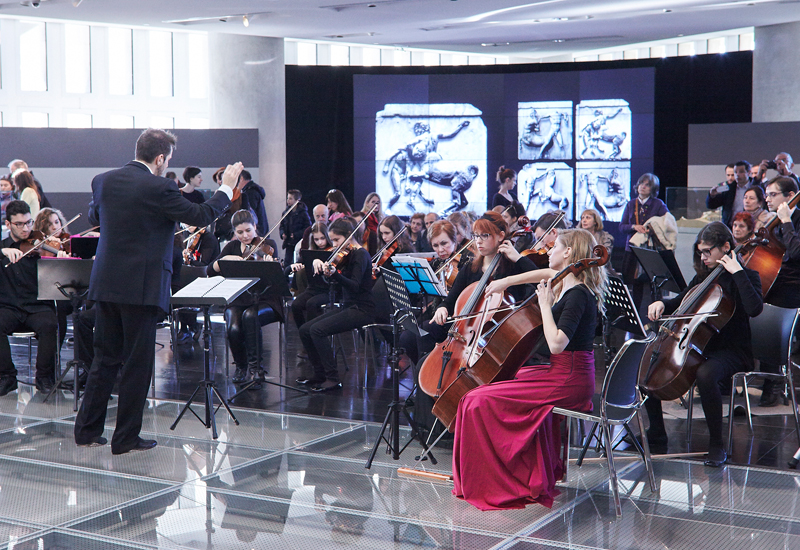
Enjoy musical performances that bring the holiday spirit to life:
- Sunday, December 22: Students from the Pallini Experimental Music School Choir and Orchestra perform Christmas classics at 12:00 PM.
- Monday, December 23: The Cretan Dance Group performs traditional dances and carols at 12:30 PM.
- Saturday, December 28: The Air Force Band plays timeless Christmas melodies at 12:00 PM.
- Monday, December 30: Students from the Athens Music School Jazz Ensemble perform festive jazz hits at 12:00 PM.

- Reservations: Call 210 9000915
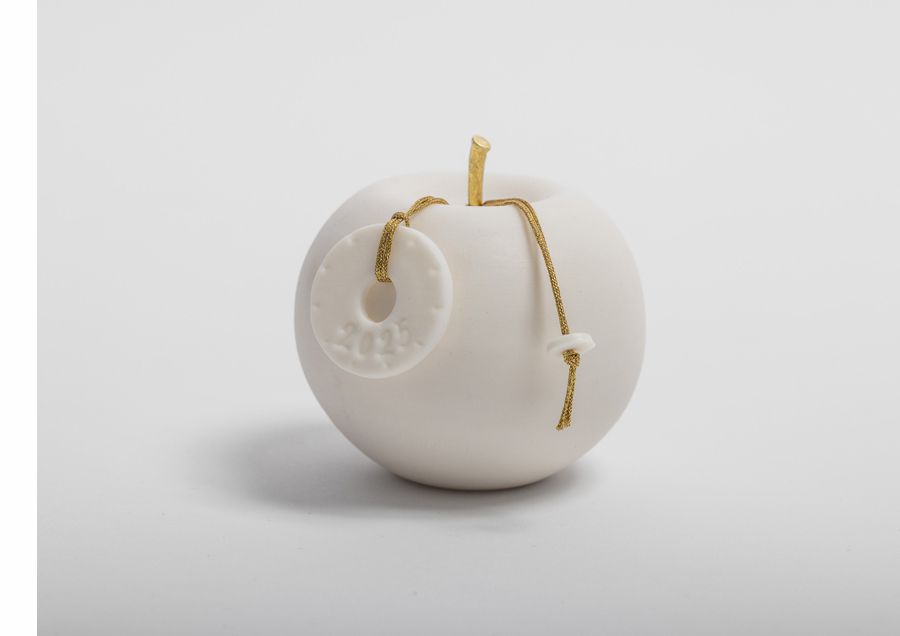
5 Greek Islands You Need To See
You’d be forgiven for thinking the Greek islands were invented for tourists. Though tranquil, idyllic and remarkably quaint, it was only relatively recently that places such as Mykonos, Santorini and Corfu became destinations for everyone from celebrities to honeymooners. Even mainland Greeks did not vacation in the islands until a few decades ago.
Now the islands have become some of the world’s most recognizable tourist destinations. Most visitors flock to the same handful of places every year but there are hundreds of islands to choose from, many of which have maintained their village life. Here are five off the well-worn tourist track...
Folegandros
When an Athens travel agent told me to visit Folegandros I was skeptical. It was late July and boats to other islands were sold out. I hadn’t heard of Folegandros and had to be shown it on a map but I booked anyway. It turns out that was the best decision I’d make that summer. Folegandros is a hidden gem in the Aegean, with a cliff-hanging whitewashed village (known locally as hora), rugged but stunning landscapes and beaches hugging the side of high promontories. Visitors are mainly Greek with a smattering of French and Italians. The sleepy town wakes up in the night with tables spilling into the cobblestone streets filled with multilingual diners. Breakfast or dinner in the courtyard of Mimi’s restaurant is almost surreal in its charm.
Patmos
In 2009, Forbes magazine proclaimed Patmos the most idyllic place to live in Europe. It’s hard not to see why. The island coastline rolls and swirls forming bays and inlets with crystal blue water. Patmos is dominated by the imposing Monastery of St. John the Theologian under which is the cave where John wrote Revelations. The spiritual island has numerous beaches and a surprisingly vibrant nightlife for a place where monks make up a good portion of the population. George’s Place at Kambos beach is a good spot to get a drink while soaking up the sun. A visit to the three historic windmills, recently restored by a Swiss banker who vacations on the island, is a must.
Anafi
Anafi is stunning, but chances are you’ll overlook it once you realize how time consuming it is to reach. There’s no airport and it’s a 10-hour ferry ride from Athens . The population? Less than 300. Those who make the journey are rewarded with the island’s remoteness, serene beaches and its enchanting white cubist village that tumbles down from the mountains. The footpaths around the island linking the various settlements make it a perfect place to hike during the early morning or at dusk when the sun is not so strong. Take a tour through the island’s history on a hike from the hora (main town) to the 8th century BC ruins of Kastelli to the monastery Panagia Kalamiotissa built on Apollo’s temple. It also offers gorgeous views of the coast.
Samos
Popular with northern Europeans, Samos is one of Greece’s greenest islands known for its Muscat wines. Samians are undeniably proud of the their export and never forget to insist that it’s not just for drinking with dessert. Vineyards roll up and down the hillsides of Samos right down to the sea and can be visited on an informal basis. The Viticultural Union of Samos’ museum is a great place to taste the wines and learn more about the island. Samos is large and meant to be explored by car, which are easy to rent here. Stay in the picturesque port of Pythagorio with its shiny cobblestone streets and bustling, popular waterfront. The fish restaurants on the far left of the port are the best. The capital Vathy is mostly devoid of tourists but worth exploring on a Friday night when locals dine and stroll along the harbour where working fishermen (and women) tend to their vessels and string nets.
Samothraki
Steeped in mystery and lore, Samothraki is one of Greece’s most magical islands. With no natural harbour and no airport, it is mostly visited by northern Greeks – and, according to legend, witches. Rumour has it that the island is frequented by sorcerers and other practitioners of the dark arts, due to its ancient reputation for pre-Hellenic cults and its more mysterious atmosphere compared to the white-washed, austere islands in the southern Aegean. Whether that’s true, the island, once described as “taciturn” by author Lawrence Durrell, is lush and mountainous with hidden waterfalls and tropical vegetation. Towering Mount Fengari hovers like a dark cloud over the north Aegean from the Greek mainland and offers impressive views – if you’re up for a hike. The island is also home to the Sanctuary of the Great Gods, a pre-Hellenic and Hellenic historical site where the famous Winged Victory of Samothrace statue, now in the Louvre, once stood.
To read more, please visit The Globe and Mail
By Alexander Besant
Greek Prime Minister Not Backing Down
With a difficult week looming for Greece and amid rising pressure from creditors, Prime Minister Alexis Tsipras on Sunday presented his government’s policy program in Parliament, pledging to implement pre-election promises to revoke austerity measures, though not all at once.
“We only have one commitment – to serve the interests of the people, the good of society,” he said, adding that it was the “irrevocable decision” of his government to implement campaign promises “in their entirety.”
The premier said the government would not seek an extension to Greece’s bailout, noting that it would be an “extension of mistakes and disaster,” and reiterated Greek demands for a “bridge” deal to be put in place until a “mutually acceptable agreement” is reached with creditors. “We do not intend to threaten stability in Europe,” he said, adding, however, that he would not “negotiate” the country’s sovereignty.
Tsipras said his government needs “fiscal space” for a discussion on restructuring Greece’s debt and a new deal, adding that increasing austerity would only exacerbate the problem.
He pledged to replace a unified property tax (ENFIA) with a new tax on large property and to increase the tax-free income threshold to 12,000 euros from 5,000 euros. He also vowed to introduce a fair tax system and crack down on tax evasion and corruption. Collective wage bargaining will be restored, Tsipras said, adding that the minimum wage will return to 751 euros a month from 586 euros, though gradually from now until 2016.
Greek authorities would also reinstate at the end of the year the so-called 13th pension for retirees earning less than 700 euros a month, Tsipras said.
A chief priority remains tackling the “humanitarian crisis,” he said, pledging free electricity and food to households that have fallen victim to the “barbarous measures” of recent years. In the civil service, immediate rehirings will include dismissed Finance Ministry cleaners, school guards and university administrative staff, he said, noting that this would not burden the budget and will come from planned hirings for 2015.
The premier also pledged to reopen ERT, the state broadcaster that was abruptly shut down in June 2013 by the former government, and to launch a parliamentary investigation to determine how Greece entered the memorandum. On privatizations, he said the government welcomed private investment but rejected a “selloff,” adding that utilities would not be up for sale. In a dig at Germany, he said it was a “historic duty” for Greece to seek war reparations and the return of a forced loan during WWII.
To read more, please visit ekathimerini.com
The Amazing Whistle Language Of Greece
VAT Hike Takes Effect On Popular Greek Islands From October 2015
To read more, please visit: Greek Travel Pages

